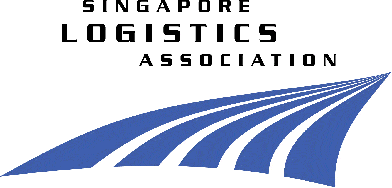Road Freight Transportation from Singapore to Malaysia
The road transport and trucking industry is a crucial sector for the economies of both Singapore and Malaysia. The industry plays a significant role in facilitating the movement of goods and services between the two countries. Road freight transportation is the main mode of delivering goods between Singapore and Malaysia, accounting for approximately 80% of all cross-border trades. Let's examine the state of the trucking industry in both countries, the different types of cargo, the regulatory and logistical factors that affect the industry, the critical checkpoints and procedures involved in the transportation of goods, shipping costs, and delivery timelines.
State of Road Transport and Trucking Industry
Singapore has a well-developed road infrastructure that enables efficient and fast transportation of goods. The country's strategic location between East and West has made it a prime transshipment hub for countries from the Asia-Pacific to Europe and the Middle East. The road freight transportation industry is a key player in the country's logistics ecosystem, with over 8,000 registered trucking companies.
Malaysia, on the other hand, has a vast network of over 98,000 kilometers of highways and major roads. Its road infrastructure is well-connected with ports, airports, and rail networks, making road transport an essential component of its freight transportation system. The road freight industry contributes significantly to the country's economy, with over 300,000 registered trucks and lorries operating in the country.
Technological Advancements and Emerging Challenges
The trucking industry in both countries has seen significant technological advancements that have enabled the industry to become more efficient and productive. Telematics technology, for instance, allows trucking companies to track the location of their trucks and provides valuable data on fuel usage, driver behavior, and vehicle health. Other technological advancements include the use of drones to inspect routes and cargo tracking systems that provide real-time information on the status and location of goods.
Despite the technological advancements, the trucking industry in both countries also faces various challenges. For instance, traffic congestion on major highways and at customs checkpoints can lead to delayed deliveries and high costs. The rise of e-commerce and cross-border trade has also led to a surge in cargo theft, particularly for high-value items such as electronics and pharmaceuticals.
Types of Cargo and Goods Transported
The types of cargo and goods transported between Singapore and Malaysia are diverse, ranging from raw materials to finished goods. Singapore is a major importer of raw materials such as steel and plastics, while Malaysia supplies a range of finished goods to Singapore, such as electronic components, food, and beverage products.
Regulatory and Logistical Factors Affecting the Industry
Trucking companies operating between Singapore and Malaysia must comply with various regulations and logistical requirements. For instance, both countries have strict customs clearance procedures that require accurate documentation and compliance with local laws and regulations. Trucking companies must ensure that they have all the necessary permits and licenses, such as the Malaysia Road Transport Permit (RTP) and Singapore's In-Transit Goods permit.
Critical Checkpoints and Procedures Involved in Transportation of Goods
Trucking companies must navigate several critical checkpoints and procedures when transporting goods between Singapore and Malaysia. At the checkpoint, cargo inspection, clearance, and verification of paperwork require clearance from customs officials. Documentation can be complicated and requires an understanding of local laws and regulations. Locating facilities for border crossing inspections can be challenging, therefore, making it vital for trucking companies to partner with freight forwarding agents that understand the complexities of cross-border movement and have extensive experience dealing with customs procedures.
Shipping Costs and Delivery Timelines
The cost of trucking from Singapore to Malaysia** is influenced by several factors. For instance, fuel prices, vehicle type, road toll rates, and road infrastructure determine shipping costs. Delivery timelines can also vary from a few hours to several days, depending on the distance and complexity of customs procedures.
Innovative Practices and Strategies
Trucking companies and freight forwarding agents are constantly adopting innovative practices and strategies to optimize their operations. For instance, some trucking companies are using vehicle tracking systems to monitor fuel usage and driver behavior to reduce fuel costs and improve safety. Other companies are partnering with technology providers to offer last-mile delivery solutions using drones and autonomous vehicles.
Conclusion
The road freight transportation industry is a crucial sector for the economies of both Singapore and Malaysia. The trucking industry plays a fundamental role in facilitating the movement of goods and services between the two countries. The industry faces various challenges, such as traffic congestion, cargo theft, and complex customs procedures, and companies must navigate several critical checkpoints and procedures when transporting goods between Singapore and Malaysia. However, with technological advancements, innovative practices, and the support of freight forwarding agents, the industry is continuing to evolve and optimize its operations, making road freight transportation an efficient and cost-effective way to transport goods between the two countries.
Land Freight Forwarding
Multi-Modal Shipping Rates
Our Partners





Megaton Shipping Pte Ltd
2 Leng Kee Road, #03-11
Thye Hong Centre
Singapore 159086
☏ (+65) 6473 7688

Megaton Shipping Pte Ltd
2 Leng Kee Road, #03-11
Thye Hong Centre
Singapore 159086
Terms of Use | Privacy Policy
© 2023 Megaton Shipping Pte Ltd. All Rights Reserved.
